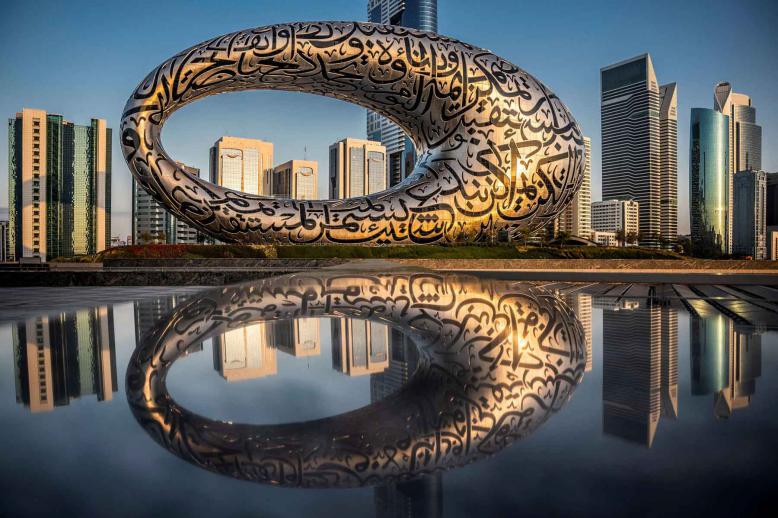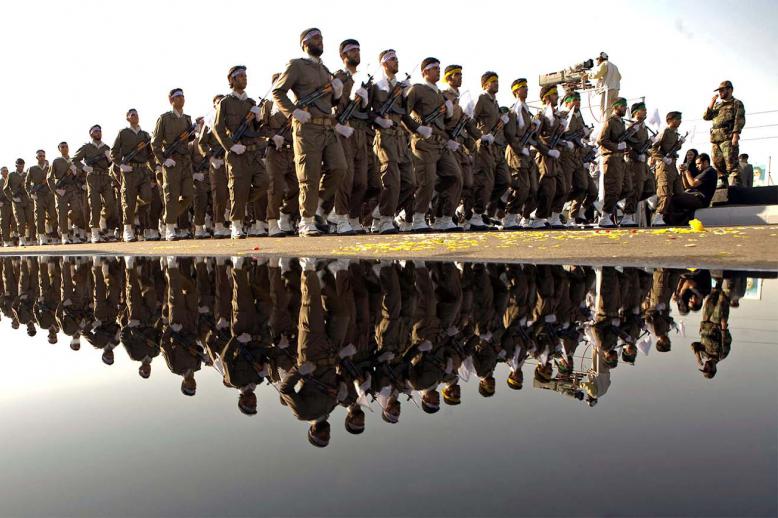The problem with corruption
Whether you are in Baghdad, Tunis, Cairo, Algiers or other capitals of the Middle East and North Africa, suspicion of rulers’ involvement in corruption tends to spark angry demonstrations. In some cases, protests have contributed to the toppling of long-tenured regimes.
Demonstrators are not always aware of the economic cost of corruption. In the region, where the prevalence of corruption is high, billions are lost every year in bribes, tax evasion, embezzlement of public funds, kickbacks and the like. Wariness about corruption scares away foreign investors and business operators and deprives Arab countries of the economic growth they need to create jobs and combat poverty.
Corruption is also part of a spiral that involves insecurity and the fraying of state institutions. It is no coincidence that countries such as Libya, Sudan, Yemen, Syria and Iraq are at the bottom of Transparency International’s rankings. Insecurity feeds on informal economic systems where trafficking, bribes and terrorist activities go hand in hand.
For Arab protesters, corruption is perceived as unbearably unfair. The degree of frustration is often commensurate with young people’s level of education and their degree of political awareness. In most cases, they see a fundamental contradiction between their deep yearning for self-esteem and their chronic marginalisation in society.
Their revolt against corruption is a revolt against official narratives that promised them careers and opportunities but the social elevator that was supposed to take them places left without them.
Because politicians are perceived as the power tools of this unfair system, it is not surprising that suspicion of corruption is a leading cause of distrust of politicians and public office holders. It is also one of the main reasons for scepticism about democratic processes and elections.
Despite the displayed anger, the attitude of the public regarding corruption is ambiguous and adds to the complexity of combating it. Changing prevailing mindsets might prove more daunting and more time-consuming than changing regimes.
These mindsets breed a tendency to accept widespread — even if relatively small-scale — corruption practices in which frustrated, cynical or just impatient individuals slip small banknotes into the hands of unscrupulous civil servants. These are frequent practices across the region by businessmen who want to expedite their application for a permit but also by masses of poor people who struggle to receive authorisation even for simple services to which they are entitled.
This type of corruption is the result of Kafkaesque red-tape restrictions compounded by the low income of civil servants. This is not a victimless practice, as it might seem, as it is the starting point for the permissive mindset that legitimises violations of the law and destroys the credibility of public service.
For many in the business communities of the Arab world, “small bribes” are sadly part of doing business. When that becomes the norm, we are only a step away from practices with even more sweeping effects such as tax evasion, which deprives the state of revenue it desperately needs. Transparency International estimates that tax evasion costs Palestinian authorities, alone, $800 million of income each year.
Another factor that numbs reactions to corruption in the Arab region is that, in a world of tribal and regional loyalties, intercession by relatives is perceived by many as an entitlement. Call it “wasta” if you are in Egypt or “aktaf” if you are in Tunisia, it amounts to the same thing: cutting through the queue where others have been waiting for a long time. In too many instances, it is not just leveraging family connections because money changes hands.
It is nonetheless large-scale and politically related corruption that gets the attention and ignites mass uprisings in the region.
In oil-rich countries such as Iraq or Algeria, abuse of public funds by senior politicians is seen as the main reason for the near bankruptcy of the countries’ nominally well-endowed economies. For Algerian demonstrators, suspected financial abuses by the former ruling “gang” members are not just criminal, they are unpatriotic.
In countries trying to overcome turmoil, there is also the risk of vindictiveness taking the upper hand over the need to shed light on corruption allegations and render the corrupt accountable. Mustapha Bouchachi, one of the leaders of Algeria’s street protests, warned against “political bias motivating judicial prosecution of businessmen.”
As a jurist, he saw the dangers involved in using trials to settle political scores. “We are in favour of prosecution but not selective prosecution or the weaponisation of justice,” Bouchachi said.
Fighting corruption in a climate of revolutionary fervour has as much to do with cathartic release as it does with real accountability. In Arab-Islamic societies, corruption can be made to carry a dangerous religious connotation. Corruption is translated in Arabic as “fassad,” the meaning of which covers not just the wide spectrum of financial abuses but also immoral or anti-Islamic behaviour. Street definitions of corruption can nudge chaotic situations towards the slippery road of mob vendettas.
Sustainable victory over corruption requires a rule of law buttressed by a system of checks and balances and a transparent judicial process in which citizens are all equal in text and in practice. Establishing the template for that kind of system may not take place in time for the evening news but it is a safer bet than adding cases of injustice to those of corruption.
Oussama Romdhani is the chief editor of the Arab Weekly.
Copyright ©2019 The Arab Weekly







